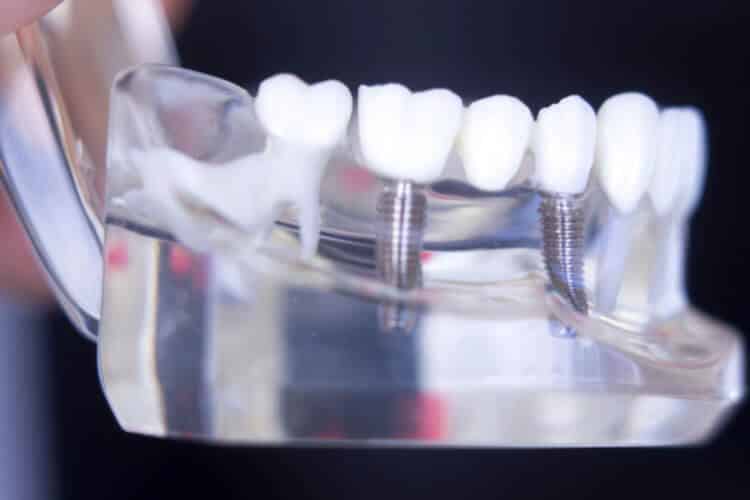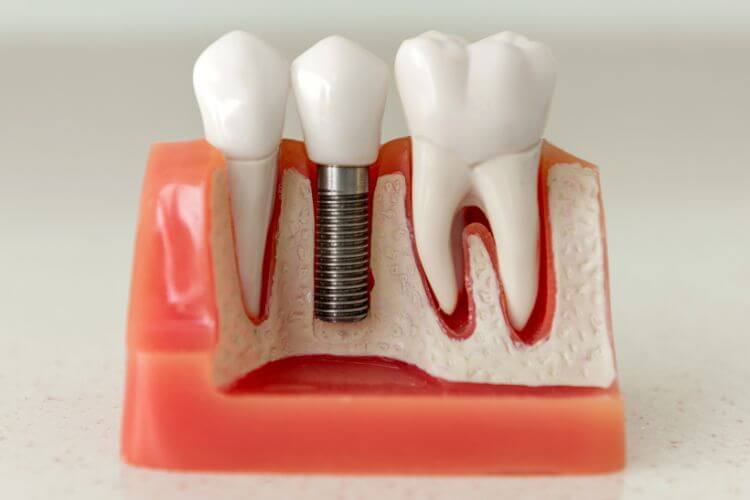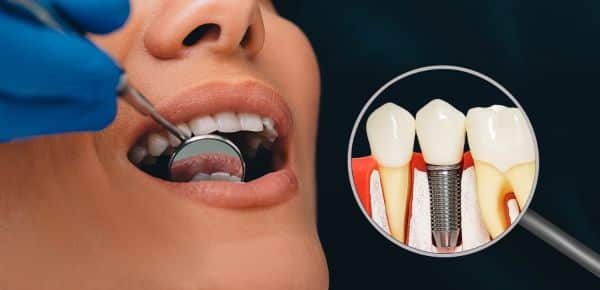Hello everyone! 😊
Welcome to our deep-dive discussion surrounding the fascinating world of dental implants.
Are you considering replacing a lost tooth to regain your flawless smile?
Maybe you’re just doing some research for a friend or loved one? Either way, understanding dental implants and their success rates is a crucial part of the decision-making process.
In this article, we’ll demystify the topic of dental implants, revealing their true success rates and explaining what you can expect from the procedure.
Ready to learn with us? Let’s get started! 🚀🙌✨
Table of Contents
Understanding Dental Implants
Dental implants can be daunting. Throw in industry jargon like ‘endosteal’ and ‘abutment,’ and it’s easy to feel overwhelmed!
But don’t fret, we’re here to demystify the world of dental implants and give you a grasp on what to expect. Simply put, dental implants replace missing teeth, replicating them from root to crown for a natural look and feel.
Now, you might be pondering, “Are dental implants right for me?”
Let’s help you answer that by breaking it down:
- Who needs dental implants?
Everyone deserves a bright, complete smile! So, whether you’ve lost a tooth due to decay or an unfortunate soccer incident, dental implants could be your ticket to renewed confidence. - Are dental implants effective?
Absolutely! Dental implants boast a high success rate, with most lasting a lifetime. They preserve natural bone while stimulating bone growth, so they’re not just effective – they’re beneficial. - What about the procedure?
We know the word ‘procedure’ can sound intimidating. However, with dental implants, we’re talking about a commonly performed, routine treatment with minimal discomfort.
We could dive into a lot more insights about dental implants – types, costs, pros and cons, caring for your implants, the wonders of modern dental technology, and more. You can find all these crucial details on our Understanding Dental Implants page.
Remember, knowledge is the cornerstone of any decision, especially when it comes to your health.
Do take the time to understand dental implants before making up your mind. Keep in mind that while facts and data can provide a picture, nothing beats a personalized consultation.
Speak to your dentist and get their insights on whether dental implants are the best choice for you.
With this, we hope we’ve contributed to your journey towards a brighter, more confident smile.
The world of dental implants need not be intimidating. After all, it’s all about understanding, isn’t it?
Success Rate of Dental Implants: An Overview
Imagine beautifying your smile with a dental implant, a high-tech solution that feels and functions like a natural tooth ❤️. Isn’t that lovely?
But, wait a moment! You’re likely wondering about its long-term success rate, right? 🤔
Well, you’re in luck because we have some impressive data to share! The success rate of dental implants is a topic worth delving into, given its direct impact on our decision-making process.
Let’s unravel the secret together!
On average, dental implants boast an astonishing success rate of about 97% at 10 years. Yes, you heard it right! Nearly all implanted teeth manage not only to survive but thrive in their new home 😉.
Interestingly, even after twenty long years, approximately 75% of dental implants continue to stand their ground, helping restore the luxurious luster of the recipients’ smiles.
Larger-scale scientific studies further echo this sentiment, reporting long-term survival rates between 93.3% and 98% for dental implants. Isn’t it reassuring to know that dental implants owe their remarkable reputation partly to their impressive longevity along with their natural look and functional efficiency?
Moreover, we can’t help but marvel at the predictive success rate for dental implants nearing a staggering 98%. These numbers light an optimistic beacon for all those considering this dental procedure, offering a sigh of relief and affirming their trust in dental implants 🙌.
To assemble these intriguing figures:
- 97% success rate at 10 years 🎯
- 75% success rate at 20 years ⏳
- Long-term survival rates of 93.3% to 98% 📈
- Predicted success rate near 98% 🥇
Considering these excellent rates, it’s no surprise that dental implants have soared in popularity. Their technological advancement and precision offer, quite arguably, one of the most successful outcomes in the dental field.
In a nutshell, the success rate of dental implants is a testament to their efficacy, cementing their position as a top choice for teeth replacement.
However, individual results can vary, and it is important to consult with a professional for personalized advice. Can we say yay for dental implants! Who knew stats could bring so much cheer? 🥳
So, say goodbye to any nagging fears about dental implant success rates! Here’s to beautiful smiles and statistics that inspire confidence!😊
Breakdown of Success Rates
High success rates for dental procedures often determine which one to choose, chiefly when dealing with complex procedures such as implants.
By analyzing the success rate over time, it becomes clear that dental implants have a high probability of longevity, even more so, when handled by an experienced periodontist or surgeon.
Case in point, some studies show an impressive success rate of over 95% for the implant restoration process.
Let’s break down the success rates a bit more to understand the fascinating statistics underpinning these procedures! 👇
Success Rate Over Time
The timeline is a crucial aspect to consider regarding the success rate of dental implants. Can they stand the test of time? Well, they sure do.
Reports show a sheer 90% to 95% success rate of dental implants over a period of 10 years.
Think about that statistic for a minute! That means that nearly all implants installed a decade ago are still up and running with no issues, but experts argue that when maintained correctly and with regular check-ups, implants can last a lifetime.
Success Rate by Procedure
Of course, the success rate also depends on the procedure used in dental implant restoration. For instance, when a periodontist, a specialist in gum disease and structures of teeth, handles the implant process, the success rate can be as high as 95% over 24 years, as stated by the National Library of Medicine.
This suggests that the practitioner’s experience significantly influences the outcome, as does the patient’s lifestyle and oral hygiene habits.
So it’s crucial to consider getting the best hands on deck in your pursuit of a better smile. 😄
Success Rate by Implant Type
Lastly, we can’t overlook the influence of implant types on success rates. Versatile as they are, dental implants come in different shapes and sizes to suit a variety of needs.
According to various studies, the success rates of single-tooth implants range between a staggering 95% and 98% over ten years.
These are truly impressive numbers, indicating that dental implants are not just safe but incredibly reliable over time. However, always remember to discuss with your dentist which type of dental implant would be the best for your specific needs.
By now, it should be pretty clear that dental implants are one of the safest and most successful procedures you can opt for to restore your smile and oral health.
With success rates this high, it’s easy to see why many dentists and patients alike rely on this treatment as a go-to for missing teeth.
It’s all smiles when it comes to dental implants! 😉
Impact of Success Rate on Quality of Life
One of the main concerns individuals have when considering dental implants is undoubtedly the success rate. After all, making the decision to undergo a dental implant procedure is a significant one and naturally, we want to ensure that the likely outcome will be a positive one.
But here’s the good news: dental implants have been shown to have an impressively high success rate – around 95%!
This stunning success rate is a testament not only to modern dental procedures and techniques but also to the expertise of dental professionals. It’s simply amazing how dental science has evolved to the point where we can confidently expect a dental implant procedure to be successful most of the time.
However, the importance of the success rate of dental implants extends beyond the procedure itself. The real impact lies in the enhanced quality of life it gifts to those who undergo it.
- Feel the Difference: One of the primary reasons people opt for dental implants is the astounding difference they notice in their everyday life. The ability to eat, talk, and laugh freely, without worry, can significantly boost confidence and self-esteem.
- Looks Like Natural Teeth: Dental implants not only function like real teeth but look like them too. This cosmetic advantage can drastically improve one’s appearance and, consequently, positively affect their social life.
- Long-Lasting and Reliable: With proper care, dental implants can last a lifetime. This resilience further enhances the overall value they bring to your life.
So yes, we do have to talk about success rates when discussing dental implants—because it reassures hesitant individuals that the odds are in their favor.
But more importantly, we also need to highlight the transformative power these implants hold—the potential to not just restore oral function but also to greatly improve the overall quality of life.
“Dental implants are more than just a high-quality replacement for missing teeth, they also act as catalysts to a better, more fulfilling life.”
I hope this gives you a deeper understanding of the tremendous impact the success rate of dental implants can have on one’s quality of life.
Dental implants aren’t merely about replacing what’s lost; they’re about providing an opportunity for a new beginning! 🦷💫
Long-term Effectiveness of Dental Implants
The charm of a healthy, captivating smile runs deeper than aesthetic appeal—it’s an indicator of your overall well-being!
When teeth require replacement due to decay, injury, or disease, dental implants surface as a top choice for many, and it’s easy to see why! Meticulously designed to blend with your natural teeth, dental implants aren’t just for show—they’re a long-term investment in your oral health.
But the question begs: how effective are they in the long run? This is precisely what we’ll delve into in this section.
Research in the field is particularly encouraging. Based on implant therapy outcome studies, more than 95% of dental implants are still in place after 5 to 10 years.
This impressive success rate is attributed to the impressive advancements in implant technology. 🏥
There are several reasons for the positive results:
- They function similarly to natural teeth, supporting normal biting and chewing while preserving the bone beneath.
- Dental implants are durable and resistant to decay. They don’t require special maintenance outside the typical oral hygiene practices.
- Their design, material, and placement processes have been progressively fine-tuned over the years to increase success rates and enhance outcomes.
We warmly welcome the future as an era of continued innovation, ensuring that dental implants remain a highly effective, long-term solution for teeth replacement.
If you’re eager to dive deeper into these advancements, I’d recommend reading our recent article on the Advancements of Dental Implants
Despite the undeniable benefits and impressive success statistics, we stress the importance of discussing your particular circumstances with your dentist. Dental implants aren’t one-size-fits-all – instead, their effectiveness is relative to individual factors like general health, oral hygiene practices, and commitment to follow-up appointments.
It’s important to remember that while the figures speak volumes about a majority of dental implants cases, individual results may vary.
By maintaining dental implants as an integral part of our routine dental care, we can safeguard our precious smiles for years to come!
😄 So keep smiling, knowing that dental science has your back (or should we say, your teeth?) in your pursuit of sustaining a healthy, charming smile.
Conclusion
So, what does all these data and success rates suggest?
They indicate that dental implants, when carried out by skilled professionals, like our dedicated team at Wilshire Smile Studio, have a high success rate.
Despite the varying factors that can influence success rates such as time, procedure, and type of implant, the bottom line is clear: Dental implants are a reliable, effective, and long-term solution for people suffering from tooth loss.
Taking the leap to get dental implants is not just about enhancing your aesthetics; it’s also a step towards improving your oral health and overall quality of life.
At Wilshire Smile Studio, we aim to keep your smile beautiful and your oral health in optimal condition. With affordable prices and tailored financing options, we’re here to make your journey towards a healthier smile accessible and stress-free.
Remember: A confident smile is a powerful asset. If you’re ready to bring back that precious asset and the joy it brings–consider dental implants.
We’re here to help you every step of the way. Because at Wilshire Smile Studio, your smile is our mission.
Book your free consultation today or call 323-DENTIST (323-336-8478) for more information.
Frequently Asked Questions
1. What is the success rate of dental implants?
The success rate of dental implants is typically around 95-98%. However, the success rate can vary depending on various factors such as the patient’s overall health, oral hygiene, the location of the implant, and the experience of the dentist placing the implant.
2. How long does a dental implant last?
With proper care and maintenance, dental implants can last a lifetime. It is essential to practice good oral hygiene, regular dental check-ups, and avoid habits such as smoking, which can affect the longevity of dental implants.
3. Is the dental implant procedure painful?
The dental implant procedure is usually performed under local anesthesia, ensuring that the patient doesn’t feel any pain during the surgery. However, some discomfort and swelling might be experienced during the recovery period, which can be managed with prescribed pain medications.
4. Are dental implants suitable for everyone?
Dental implants can be suitable for most individuals, but certain conditions such as uncontrolled gum disease, inadequate bone density, and systemic health issues might affect the candidacy for dental implants. A thorough evaluation by a dental professional can determine if implants are the right option for you.
5. What is the cost of dental implants?
The cost of dental implants can vary depending on factors such as the number of implants needed, additional procedures like bone grafting, and the region where the treatment is performed. On average, the cost of a single dental implant can range from $1,000 to $3,000.









